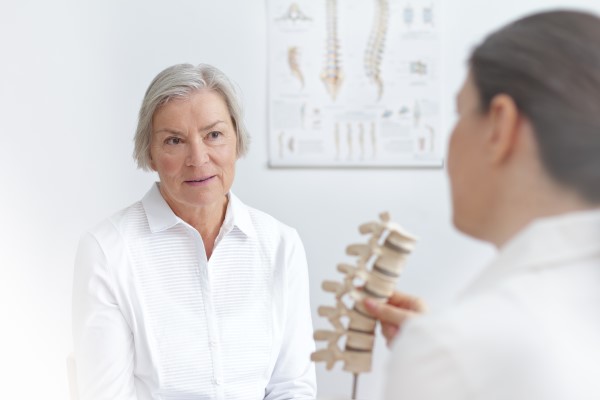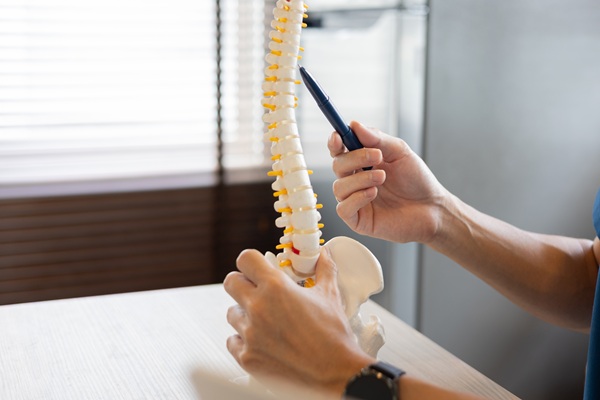What Can Happen If Lumbar Stenosis Is Left Untreated?

Lumbar stenosis is a condition that leads to the narrowing of the spinal cord or the bone tissues that house the spinal nerve. The condition can lead to severe discomfort and make simple activities, like walking, a challenge if left untreated.
In rare cases, lumbar stenosis can be a congenital disability, but it is typically caused by the effects of wear and tear on the body. The condition often worsens as a person gets older, and it can lead to weakness in other parts of the body besides the spine. It can also be caused by degenerative conditions like osteoarthritis, herniated discs, and tumors. A person’s neck and lower back areas are the two most likely parts of the body to be affected by the condition.
Results of untreated lumbar stenosis
The roots of the spinal cord around the lower back area getting compressed leads to weakness, tingling, numbness, and pain in the lower back. These sensations are often transferred to the legs and buttocks. Over time, a person with lumbar stenosis will begin to experience pain whenever they take a step. Walking might eventually become too painful for them.
Lumbar stenosis is more likely to affect adults over the age of 50, and it typically has a significant effect on their quality of life when left untreated. The ways that the condition can negatively impact a person’s life include the following.
Decreased mobility
Lumbar stenosis makes activities like walking a challenge, so hobbies like playing sports or hiking can be even more difficult. People with the condition often feel pain when they try to move, which encourages them to lead a sedentary lifestyle. The lack of activity leads to challenges of its own, like weight gain and depression.
Disability
When left untreated, lumbar stenosis can progress to the point that a person is left disabled. Symptoms can become so severe to the point that a person can no longer stand up on their own.
Reduced bowel and bladder control
In some cases, lumbar stenosis can lead to the nerves connected to the bowel or bladder becoming weak. This is a clear sign that the patient needs immediate treatment.
Chronic pain and discomfort
Lumbar stenosis can lead to pain in the legs, buttocks, back, and neck. The pain and discomfort gradually increase over time, and some people do not even notice it when they first develop the condition.
Restore your quality of life
Lumbar stenosis can leave you on the sidelines while life passes you by. It leads to a life filled with weakness, pain, and numbness. It can prevent you from enjoying activities that bring you joy, like walking through a trail or enjoying a slow dance with a significant other. When left untreated, the condition can take away your ability to take care of yourself as you struggle with things like standing up on your own.
Fortunately, our neurosurgeon can restore your quality of life by diagnosing your condition and performing appropriate treatments. Give us a call or visit our Phoenix clinic to set up a consultation.
Request an appointment here: https://arizonaneurosurgeon.com or call Randall Porter, M.D. at (602) 603-8951 for an appointment in our Phoenix office.
Check out what others are saying about our services on Yelp: Read our Yelp reviews.
Recent Posts
Spondylolisthesis occurs when one vertebra in the spine slips forward over the one below it, and understanding treatment helps patients make informed decisions about pain relief and mobility. This condition can cause mild to severe lower back pain, leg pain, stiffness, or even changes in posture and walking patterns. Understanding the full range of treatment…
Hemifacial spasm is a neurological condition that causes involuntary twitching or contractions on one side of the face. These spasms may begin near the eye and gradually affect surrounding muscles, including the cheek and mouth. While the condition is not typically life-threatening, it can significantly impact daily life and emotional well-being. Hemifacial spasm treatment focuses…
A herniated lumbar disc occurs when the soft center of a spinal disc pushes through a tear in the outer ring, often irritating nearby nerves. Early attention helps reduce pain and protect nerve function. Patients may experience sharp low back pain, radiating leg pain (sciatica), numbness, or weakness. A neurosurgeon evaluates symptoms, reviews imaging studies,…
Meningioma is a type of tumor that develops from the membranes covering the brain and spinal cord. While many meningiomas grow slowly and may not cause noticeable symptoms, some tumors can lead to significant health concerns. When you can recognize the signs early, you can get the treatment you need from a neurosurgeon, giving you…


